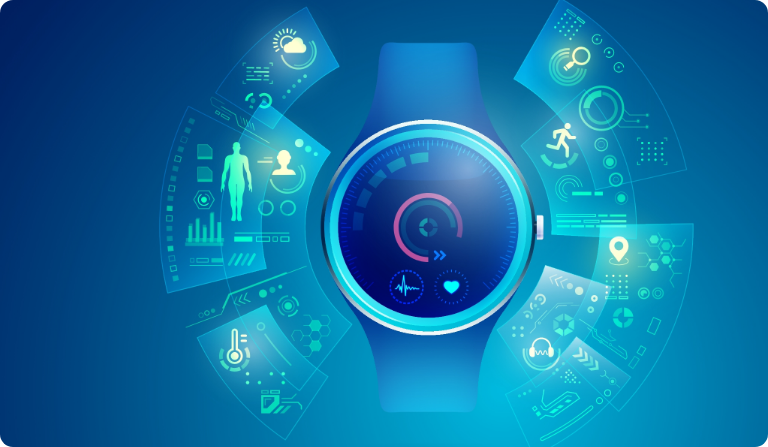
Clinical Trial Technology Trends: The Top 5 Innovations Shaping Clinical Trials in 2023

Summary
Discover the top 5 clinical trial technology trends in 2023. From wearables to AI, Digital Patient engagement tools and techniques that are shaping the future of clinical research- Author Company: clinion
- Author Name: Rajesh Pothula
- Author Email: rajesh.pothula@clinion.com
- Author Website: https://www.clinion.com/
Clinical trials play a crucial role in the development and approval of new medical treatments and drugs. As technology continues to advance, Clinical Trial Technology is becoming a more important factor in shaping the way trials are conducted. In 2023, we can expect to see several technology trends that are set to further revolutionize the design, conduct, and analysis of trials. Some of these trends include decentralized trials, wearable devices, machine learning, and Risk-Based Quality Management (RBQM).
Growing Use of Machine Learning and AI

AI and Machine learning are becoming increasingly important in clinical trials, as they provide a way to analyze large amounts of data and make predictions about outcomes. From identifying potential trial participants to predicting patient responses to treatment, Machine Learning can help make clinical trials more efficient and effective. Additionally, these technologies can help automate routine tasks, freeing up time and resources that can be used to focus on other aspects of the trial. Some of the AI & ML applications in clinical trials include eProtocol Design, eCRF Design, Medical Coding, DB Creation, Data Analytics, CSR Automation, SDV, Site Selection, SDTM Mapping, RBM, Query Management and Chatbots.
To take advantage of these benefits, CROs and Pharma companies should consider partnering with technology companies that specialize in Machine Learning and developing or integrating Machine Learning algorithms into their clinical trials.
Expansion of Decentralized Trial Models

Decentralized trials, also known as remote trials, are changing the way clinical trials are being conducted by allowing for more flexible and patient-centered study designs that facilitate the collection of data from patients remotely in real-time. By using technologies like telemedicine, remote monitoring, and electronic consent, patients can participate in clinical trials from the comfort of their own homes, without the need for frequent visits to a physical trial site. This not only makes it easier for patients to participate in trials, but it also enables trials to be conducted more efficiently, with fewer missed visits and less time and money spent on travel and site visits.
CROs and Pharma companies can leverage decentralized trials to increase patient engagement and participation, streamline trial processes, and reduce costs. By investing in telemedicine and remote monitoring technologies, they can help ensure that trials are conducted as efficiently and effectively as possible, while still providing effective patient care and safety.
Adoption of Digital Patient Engagement Tools

Clinical trials have greatly evolved with the integration of digital patient engagement tools. These tools have proven to be invaluable in enhancing the patient experience while simultaneously providing valuable insights into patient behavior and their experiences. Not only do they increase patient engagement and satisfaction, but they also simplify trial processes and promote better compliance and patient retention.
To fully harness the potential of these advanced engagement tools, pharmaceutical companies and CROs should consider collaborating with technology firms that are experts in digital patient engagement solutions. It’s also important for these companies to prioritize user-friendliness and engagement when developing or selecting these tools, so that patients are eager to participate and provide valuable data.
Rise of Wearable Devices and Sensors

Wearable devices, such as fitness trackers and smartwatches, are becoming increasingly important in clinical trials, as they provide a way to collect real-time data on patient behavior and health. From tracking physical activity to monitoring vital signs, wearable devices can help researchers gather valuable data that can be used to improve the efficacy and safety of new medical treatments.
To leverage the potential of wearable devices, CROs and pharmaceutical firms may consider partnering with wearable device manufacturers or integrating wearable device technology into their clinical trials.
RBM to RBQM: A Step Forward in Clinical Trials

Risk-based monitoring (RBM) is becoming increasingly popular in clinical trials, as it allows for a targeted and efficient approach to monitor trial data. However, RBQM (Risk-Based Quality Management) takes this a step further, incorporating a risk-based approach into all aspects of trial management, from protocol development to data management and analysis. RBQM ensures that resources are targeted where they are needed most, resulting in a more efficient and effective clinical trial process.
